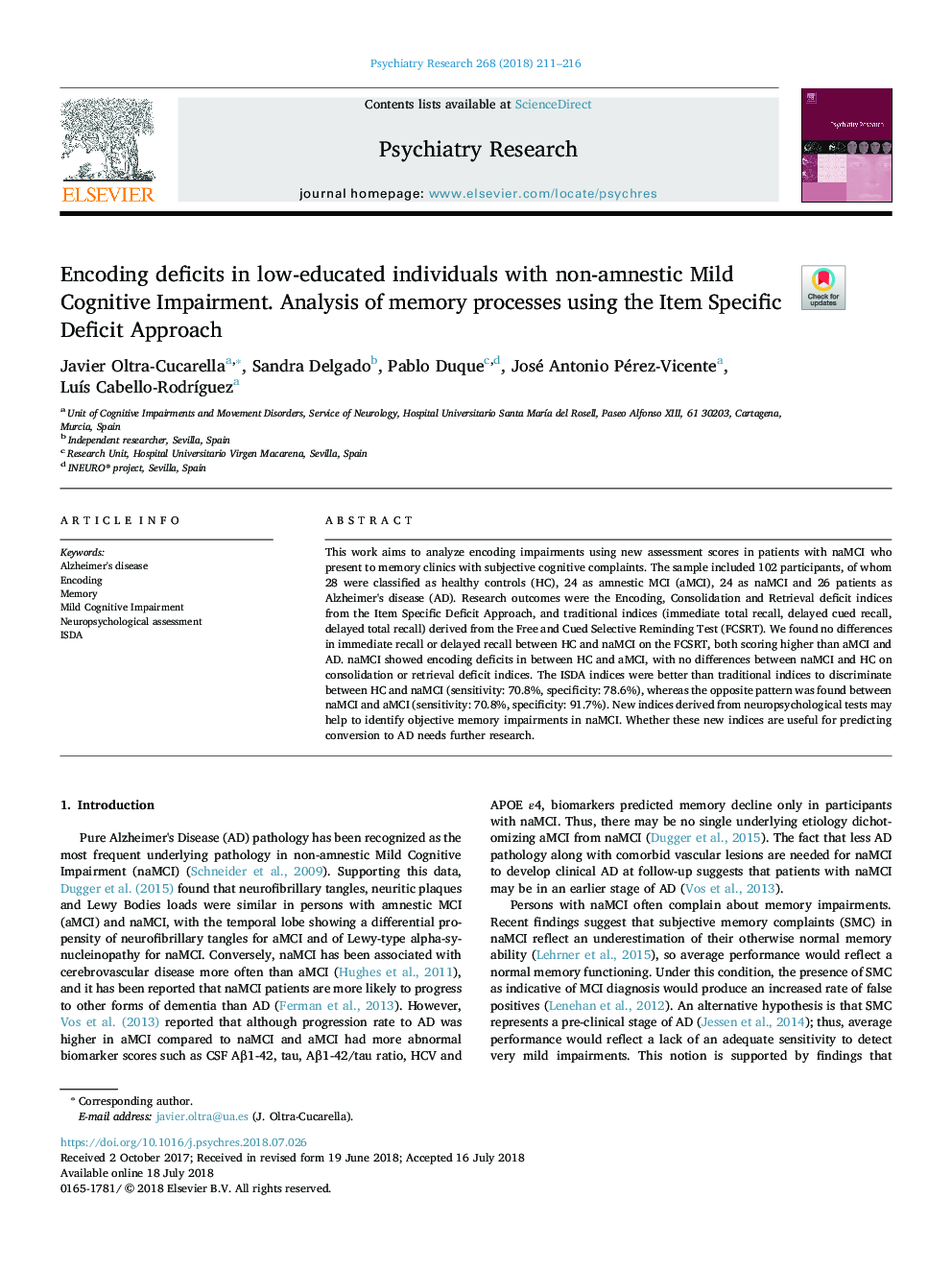| Article ID | Journal | Published Year | Pages | File Type |
|---|---|---|---|---|
| 6811164 | Psychiatry Research | 2018 | 6 Pages |
Abstract
This work aims to analyze encoding impairments using new assessment scores in patients with naMCI who present to memory clinics with subjective cognitive complaints. The sample included 102 participants, of whom 28 were classified as healthy controls (HC), 24 as amnestic MCI (aMCI), 24 as naMCI and 26 patients as Alzheimer's disease (AD). Research outcomes were the Encoding, Consolidation and Retrieval deficit indices from the Item Specific Deficit Approach, and traditional indices (immediate total recall, delayed cued recall, delayed total recall) derived from the Free and Cued Selective Reminding Test (FCSRT). We found no differences in immediate recall or delayed recall between HC and naMCI on the FCSRT, both scoring higher than aMCI and AD. naMCI showed encoding deficits in between HC and aMCI, with no differences between naMCI and HC on consolidation or retrieval deficit indices. The ISDA indices were better than traditional indices to discriminate between HC and naMCI (sensitivity: 70.8%, specificity: 78.6%), whereas the opposite pattern was found between naMCI and aMCI (sensitivity: 70.8%, specificity: 91.7%). New indices derived from neuropsychological tests may help to identify objective memory impairments in naMCI. Whether these new indices are useful for predicting conversion to AD needs further research.
Related Topics
Life Sciences
Neuroscience
Biological Psychiatry
Authors
Javier Oltra-Cucarella, Sandra Delgado, Pablo Duque, José Antonio Pérez-Vicente, LuÃs Cabello-RodrÃguez,
